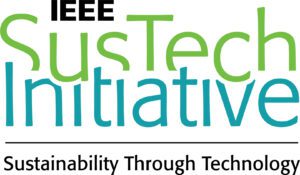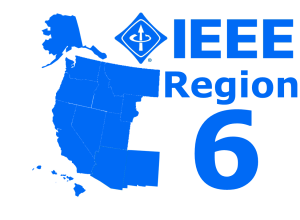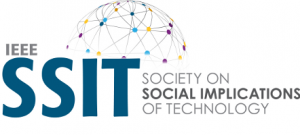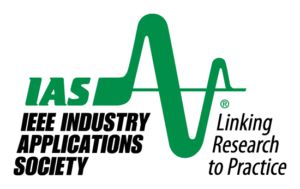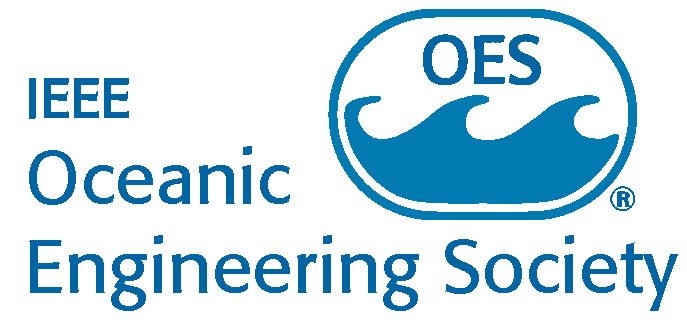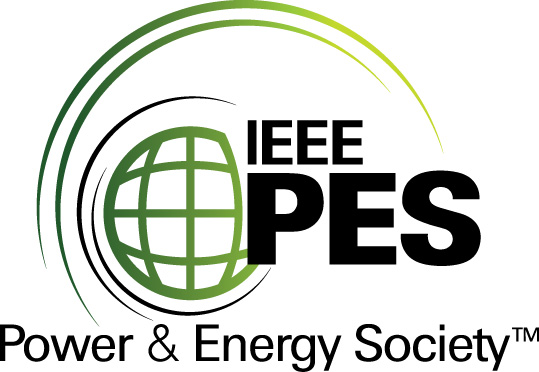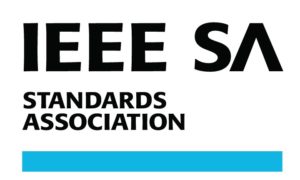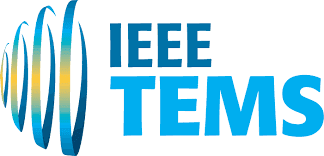Keynotes and Plenary Speakers
SusTech 2014 Keynotes and Plenary Speakers
University of Connecticut
Verdant Electronics
Departments of Nuclear Energy and Materials Science and Engineering
University of California at Berkeley
IEEE-USA VP Government Relations
Rocky Mountain Institute® (RMI)
Ethic Responsibility
Gerald Engel, University of Connecticut
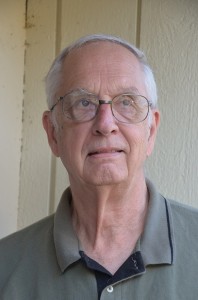 Gerald L. Engel received his bachelors degree from Hampden-Sydney College, masters from Louisiana State University and doctorate from Pennsylvania State University.
Gerald L. Engel received his bachelors degree from Hampden-Sydney College, masters from Louisiana State University and doctorate from Pennsylvania State University.
Gerald L. Engel is the Fredrick H. Leonhardt Professor of Computer Science and Engineering at the University of Connecticut. His research involves computer science and engineering education as well as social, ethical and professional issues in the computing. He has also held teaching and research positions at the Virginia Institute of Marine Science, Old Dominion University and Christopher Newport University. From 1991 – 1995 he was at the US National Science Foundation in the Computer and Information Science and Engineering Directorate, as a Program Director (1991 – 1993) and acting Deputy Division Director for Computer Research (1993-1995).
Engel has served in a number of roles in IEEE including initial chair of the IEEE Conferences Committee from 2006 – 2010. He has served on the IEEE Board of Directors, as Chair of the IEEE Ethics Committee, and a member of PSPB, EAB, TAB, and the IEEE-USA Board. He was the 2000 – 2001 and 2011-2012 President of the IEEE Society on the Social Implications of Technology, and the 2005 President of the IEEE Computer Society.
Beyond IEEE, Professor Engel has been active in the accreditation of academic programs in computing from the beginning of such efforts. He served on the working group that developed into the Computing Sciences Accreditation Board (CSAB). He was the first chair of the Computer Science Accreditation Commission (CSAC). Additionally he has been a program evaluator for both CSAC and the Engineering Accreditation Commission (EAC) of ABET. Professor Engel chaired the task force that led to the CSAB/ABET integration. He has also been actively involved in the development of curriculum guidelines in computer science and computer science and engineering, and is currently serving as a Vice President of the International Federation for Information Processing (IFIP).
In addition to being a fellow of IEEE, he is a fellow of the ACM, and a fellow of CSAB. He has been awarded numerous awards by the IEEE Computer Society, ACM, the IEEE Education Society and NASA.
Sustainability Writ Large: A Perspective on Sustainability, Its Impact and Implications
Joe Fjelstad, Verdant Electronics
Abstract:
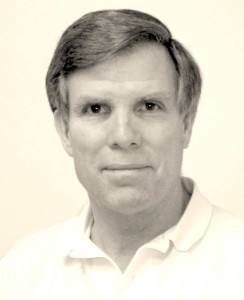 Sustainability has risen significantly in the consciousness of business leaders in industries around the globe as the realities of population growth along with the inevitable increase in consumer demand for services and products that accompany such growth. Highest on the list of concerns has been energy with rising concern over the threat of global warming due to the use of fuels which contribute measurably to the rise in greenhouse gases in the atmosphere, however, there are many other factors to be considered in the sustainability equation, not the least of which are the raw materials used in the manufacturing of our product and their long term reliability. This talk will take a look at some of these “lower level” concerns which are certain to rise in importance with the rise in humanity’s numbers both presently and in the future. It will include a discussion of what might be required to tap more fully into that, perhaps most important of “renewable resources” – the earth’s peoples – stressing the vital importance of providing the tools, materials and education that will be required to stem the growth of the world’s population. Special emphasis will be given to extol the importance of reliability in meeting the goal of achieving mass education of individuals in developing nations of the world.
Sustainability has risen significantly in the consciousness of business leaders in industries around the globe as the realities of population growth along with the inevitable increase in consumer demand for services and products that accompany such growth. Highest on the list of concerns has been energy with rising concern over the threat of global warming due to the use of fuels which contribute measurably to the rise in greenhouse gases in the atmosphere, however, there are many other factors to be considered in the sustainability equation, not the least of which are the raw materials used in the manufacturing of our product and their long term reliability. This talk will take a look at some of these “lower level” concerns which are certain to rise in importance with the rise in humanity’s numbers both presently and in the future. It will include a discussion of what might be required to tap more fully into that, perhaps most important of “renewable resources” – the earth’s peoples – stressing the vital importance of providing the tools, materials and education that will be required to stem the growth of the world’s population. Special emphasis will be given to extol the importance of reliability in meeting the goal of achieving mass education of individuals in developing nations of the world.
Joseph (Joe) Fjelstad is founder and President of Verdant Electronics, and has more than 40 years of international experience in electronic interconnection and packaging technology. Prior to founding Verdant, which is focused on a novel solder alloy free electronic assembly method, Mr. Fjelstad co-founded SiliconPipe a leader in high speed interconnection technology. He was also formerly with Tessera Technologies, a global leader in chip-scale packaging, where he was a leading inventor and was appointed to the first corporate fellowship for his numerous innovations in the field. With a background in chemistry, Mr. Fjelstad has served in a variety of capacities over his career, including analytical chemist, manufacturing chemist, process engineer, quality manager, R&D manager and international consultant. As an inventor, his innovations for electronic interconnection products, medical devices, processes and consumer items have thus far yielded 175 issued US patents and numerous foreign patents with many others currently pending. Mr. Fjelstad is a prodigious communicator as author, coauthor and editor of several books on electronic interconnection technologies and having also written more than 300 articles and commentaries on electronics. He is also an adviser to Chip Scale Review, Circuit World journal. PCB Magazine and is a monthly columnist for Global SMT & Packaging magazines and frequent commentator for Iconnect007.com. He is a recipient of several industry awards, including the IPC President’s Award for his contributions to the IPC and electronics industries. During 2000, Mr. Fjelstad was also recognized as one of the most influential persons in the printed-circuit industry in a survey sponsored by Printed Circuit Design and Fabrication and magazine and has been tapped to keynote a number of industry conferences globally over the years. He is a senior member of the IEEE, the SMTA and MEPTEC and remains active in the IPC and its projects as a member of the National Electronics Roadmap Committee, JNAC and the JISSO International Committee.
Nuclear Options for Our Energy Future
Prof. Digby D. Macdonald, University of California at Berkeley
Abstract:
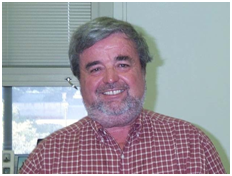 Numerous studies have shown that a direct correlation exists between the standard of living of the populace of a nation and the per capita energy consumption. It is this reason that energy has been called “the lifeblood of a nation”. Thus, the high standard of living enjoyed by the developed nations is the result of the consumption of abundant, cheap energy based, for the post part, on the combustion of fossil fuels on the “delayed carbon cycle” (i.e., we have been burning fuels over a period of about 200 years to took nature billions of years to develop). In doing so, the energy consumer has never paid the full price, the cost of which should have included CO2 capture and sequestration. Only now, after concerns of climate change have come to the forefront, have policy makers and consumers, alike, realized that any human endeavor, including energy consumption, should be subjected to life-cycle costing. However, this self-evident concept is not widely practiced in the array of human activities. When nuclear power was first introduced in the 1950s, it was viewed as a God-send for a society that had become addicted to fossil fuel and was characterized by Dr. Levi Strauss, Chairman of the then Atomic Energy Commission, as being so inexpensive that “it would be too cheap to meter”. That prediction, like many other famous utterances, did not pan out, but, still, nuclear power, which is subjected to life-cycle costing, has proven to be cost competitive with fossil fuels, hydro, and other “renewables” (wind, solar, tidal, etc). While the technical advantages of nuclear power are evident, three well-known incidents at Three Mile Island (TMI), Chernobyl, and Fukushima-Daiichi(F-D) have severely eroded the public’s confidence that nuclear power can be safely managed. However, all three incidents were attributable to human factors; design errors (F-D, TMI) or operator errors (Chernobyl) and the reactors, themselves, were not “passively safe”. The next Generation IV reactors will be passively safe, will be much more efficient, some will be fuel-flexible, and some will be of modular design to minimize transmission losses and hence costs. By selecting the right technologies, it is evident that the energy resource within fission is virtually limitless and that fission technology can be rendered virtually waste-free. In this seminar, I will review the current options for our energy future and I will place in context the contributions that might be made by both fission and fusion nuclear power options. I will argue for a steady transition from the delayed carbon cycle to fusion/fission with contributions from the so-called “renewables” being limited to that which is commensurate with the stability of electric power grids.
Numerous studies have shown that a direct correlation exists between the standard of living of the populace of a nation and the per capita energy consumption. It is this reason that energy has been called “the lifeblood of a nation”. Thus, the high standard of living enjoyed by the developed nations is the result of the consumption of abundant, cheap energy based, for the post part, on the combustion of fossil fuels on the “delayed carbon cycle” (i.e., we have been burning fuels over a period of about 200 years to took nature billions of years to develop). In doing so, the energy consumer has never paid the full price, the cost of which should have included CO2 capture and sequestration. Only now, after concerns of climate change have come to the forefront, have policy makers and consumers, alike, realized that any human endeavor, including energy consumption, should be subjected to life-cycle costing. However, this self-evident concept is not widely practiced in the array of human activities. When nuclear power was first introduced in the 1950s, it was viewed as a God-send for a society that had become addicted to fossil fuel and was characterized by Dr. Levi Strauss, Chairman of the then Atomic Energy Commission, as being so inexpensive that “it would be too cheap to meter”. That prediction, like many other famous utterances, did not pan out, but, still, nuclear power, which is subjected to life-cycle costing, has proven to be cost competitive with fossil fuels, hydro, and other “renewables” (wind, solar, tidal, etc). While the technical advantages of nuclear power are evident, three well-known incidents at Three Mile Island (TMI), Chernobyl, and Fukushima-Daiichi(F-D) have severely eroded the public’s confidence that nuclear power can be safely managed. However, all three incidents were attributable to human factors; design errors (F-D, TMI) or operator errors (Chernobyl) and the reactors, themselves, were not “passively safe”. The next Generation IV reactors will be passively safe, will be much more efficient, some will be fuel-flexible, and some will be of modular design to minimize transmission losses and hence costs. By selecting the right technologies, it is evident that the energy resource within fission is virtually limitless and that fission technology can be rendered virtually waste-free. In this seminar, I will review the current options for our energy future and I will place in context the contributions that might be made by both fission and fusion nuclear power options. I will argue for a steady transition from the delayed carbon cycle to fusion/fission with contributions from the so-called “renewables” being limited to that which is commensurate with the stability of electric power grids.
Digby D. Macdonald is Professor in Residence, Departments of Materials Science and Engineering and Nuclear Engineering, at the University of California at Berkeley.
Born in Thames, New Zealand, December 7, 1943, Professor Macdonald gained his BSc and MSc degrees in Chemistry at the University of Auckland, New Zealand, and his Ph.D. degree in Chemistry from the University of Calgary in Canada. He has served as Assistant Research Officer at Atomic Energy of Canada Ltd., Lecturer in Chemistry at Victoria University of Wellington, New Zealand, Senior Research Associate at Alberta Sulfur Research, Honorary Associate Professor at the Chemistry Department of the University of Calgary, Director and Professor of the Fontana Corrosion Center, Ohio State University, Vice President, Physical Sciences Division, SRI International, Menlo Park, California and Professor and later Distinguished Professor of Materials Science and Engineering at Pennsylvania State University from 1991 to the end of 2012. Professor Macdonald has received numerous awards and honors, including the 1991 Carl Wagner Memorial Award from The Electrochemical Society; the 1992 Willis Rodney Whitney Award from The National Association of Corrosion Engineers for “contributions to the science of corrosion”; the W. B. Lewis Memorial Lecture from Atomic Energy of Canada, ltd., for his “contributions to the development of nuclear power in the service of mankind”; the H. H. Uhlig Award from The Electrochemical Society; the U. R. Evans Award from The Institute of Corrosion, UK; the 20th Khwarizmi International Award in fundamental science; and the Wilson Research and Teaching Awards of the Pennsylvania State University. He is an elected fellow of NACE-International; The Electrochemical Society; the Royal Society of Canada; the Royal Society of New Zealand; ASM International; the World Innovation Foundation; the Institute of Corrosion (UK); and the International Society of Electrochemistry. From 1993 to 1997 he was a member of the US Air Force Science Advisory Board with the protocol rank of Lieutenant General. He was awarded the US Air Force Medal for Meritorious Civilian Service in 1997. Dr. Macdonald was a Trustee of ASM International and has recently been inducted Doctuer Honoris Causa by INSA-Lyon, Lyon, France. He was a recent recipient of the Lee Hsun Research Award of the Chinese Academy of Sciences; the recipient of the Gibbs Award from the International Association on the Properties of Water and Steam; and is the 2013 recipient of the Frumkin Medal from the International Society of Electrochemistry. Dr. Macdonald has published more than 920 papers in peer-reviewed scientific journals, books, and conference proceedings, plus four books, one of which (“Transient Techniques in Electrochemistry”) established an important area of electrochemical research, and has 10 patents and numerous invention disclosures credited to his name. His professional competence lies in the fields of electrochemistry, corrosion science, battery science and technology, thermodynamics, chemical kinetics, high temperature aqueous chemistry, nuclear power technology, energy conversion technology, and physical chemistry. Finally, under his tutelage, more than 150 students have graduated with advanced degrees in Chemistry and Materials Science and Engineering over the past four decades. Of particular importance is that Dr. Macdonald is the originator of the modern theory of passivity in the form of the Point Defect Model and has been a pioneer of Electrochemical Impedance Spectroscopy, particularly for corrosion reaction mechanistic analysis.
Sustainability Policy in the U.S. : Creating and Preserving a Future for Our Next Generation
Tom Tierney, IEEE-USA VP Government Relations
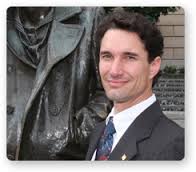 Tom Tierney is the IEEE-USA Vice-President for Government Relations. In this position, he helps organize IEEE-USA’s technology policy committees to support the interests and needs of the USA-based IEEE members.
Tom Tierney is the IEEE-USA Vice-President for Government Relations. In this position, he helps organize IEEE-USA’s technology policy committees to support the interests and needs of the USA-based IEEE members.
For his “day job,” Tom is a scientist at Los Alamos National Laboratory (LANL) where currently serves as a senior project leader in the Global Security Directorate. There he supports basic research and analysis for the development of emerging defense technologies as well as counterterrorism programs. Tom started at Los Alamos in 1997 as a graduate student and has participated in a variety of technical research including: basic and applied plasma sciences for inertial confinement fusion, high energy density physics, radiation hydrodynamics and transport, and astrophysics as well as research in advanced diagnostics and detectors.
He is currently co-chair of Department of Commerce’s Emerging Technologies and Research Advisory Committee which advises the Bureau of Industry and Security on emerging technology issues as well as the impact of deemed export regulations on fundamental research environments. He is also an active and contributing member of the American National Standards Institute’s Accredited Standard Committee for Laser Safety (Z136).
Tom served in the U.S. Department of State as the 2009 IEEE Engineering and Diplomacy Fellow, where he supported the Office of the Coordinator for Counterterrorism by providing technical advice on counterterrorism and nuclear policy. He received the U.S. Department of State’s Meritorious Honor Award for his work there.
He received an A.A. degree in foreign languages from Saddleback College, a B.S. degree in astrophysics from University of California, and a M.S. in physics from the University of California at Irvine. He completed his Ph.D. thesis on strongly coupled plasmas at LANL and UC Irvine in 2002. Tom has coauthored over 75 unclassified and classified journal articles and proceedings reports as well as over 100 internal LANL reports.
Reinventing Fire: Bold Business Solutions for the New Energy Era
Eric Wanless, LEED AP, Rocky Mountain Institute® (RMI)
Abstract:
A 2.6x-bigger 2050 U.S. economy could need no oil, coal, or nuclear energy and one-third less natural gas; emit 82–86% less fossil carbon; cost $5 trillion less; require no new inventions nor Acts of Congress; and be led by business for profit. Integrating all four energy-using sectors (transport, buildings, industry, electricity) and four kinds of innovation (technology, policy, design, and strategy) can yield tripled efficiency (often with expanding returns thanks to integrative design), ~74%-renewable total supply, and an 80%-renewable, half-distributed, highly resilient electric grid.
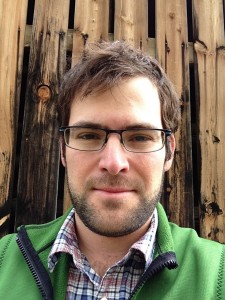 Eric Wanless is a Senior Associate with RMI’s industry and electricity practices, where he is a key contributor to the Reinventing Fire: China program as RMI’s industrial sector lead and champions a nascent effort to eliminate energy waste in consumer products by harnessing business’ drive for profit. He is also actively involved in energy strategy development and implementation, and design innovation for electric utilities, heavy industry, and corporations. Eric has been involved with RMI in various capacities since 2005.
Eric Wanless is a Senior Associate with RMI’s industry and electricity practices, where he is a key contributor to the Reinventing Fire: China program as RMI’s industrial sector lead and champions a nascent effort to eliminate energy waste in consumer products by harnessing business’ drive for profit. He is also actively involved in energy strategy development and implementation, and design innovation for electric utilities, heavy industry, and corporations. Eric has been involved with RMI in various capacities since 2005.
Before joining RMI, Eric worked with the Research and Policy group at Ecova (formerly Ecos Consulting) where he led an effort to identify, quantify, and pursue significant cost-effective energy savings in computers and other IT equipment. This effort leveraged deep engineering teardowns and analysis, energy policy expertise, and ultimately led to the development of more aggressive voluntary and mandatory efficiency standards on state, federal, and international levels. Eric has also worked with the Natural Resources Defense Council implementing collaborative energy efficiency policy in California and as a senior field instructor teaching leadership and communication with the National Outdoor Leadership School.
Eric has a Master of Science, Energy Engineering, and a Bachelor of Science, Environmental Engineering, both from Stanford University. He is a MAP Sustainable Energy Fellow, 2005, 2006 and a LEED Accredited Professional.




